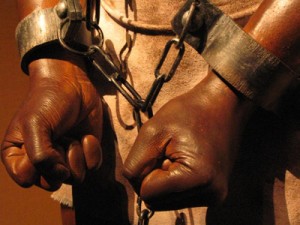The current lawsuits will be brought before the United Nations International Court of Justice in the Netherlands. While the amount of requested reparations has not been announced, Caricom intends to right a historical wrong, “the awful legacy of these crimes against humanity – a legacy which exists today . . . ought to be repaired for the developmental benefit of our Caribbean societies and all our peoples.” The three countries listed as defendants are historically responsible for the slave trade in certain parts of the Caribbean; the United Kingdom for slavery in the English-speaking countries, France for slavery in Haiti, and the Netherlands for Suriname, a former Dutch colony on the edge of South America.
The first step in international disputes of this kind is to seek a negotiated settlement with the defending governments. Jamaica, Antigua, and Barbuda have already created national commissions on reparations, while the remaining countries in Caricom have agreed to follow suit. All 14 counties have voted unanimously to advance this agenda despite an intensely long legal battle ahead.
Should there be a statute of limitations in regards to international law and the payment of reparations?
Do you think Caricom has the right to bring this case before the United Nations International Court of Justice? Is this the start of a united Caribbean front similar to the EU?
Why was America not listed as a defendant in this round of litigation?

While the slave trade was a horrific aspect of Caribbean history and many countries in the Caribbean would greatly benefit from compensation, it does seem that a statute of limitations would be a reasonable way to handle future cases regarding payments of reparations. If this case is successful, numerous other cases can arise regarding the slave trade that affected a number of countries. This case also differs from the successful Kenyan case because in that case, there were still survivors who were able to testify to the horrors they experienced.
While I do see some parallels with the European Union, I feel the Caricom developed for the point of acting as a voice for the small countries of the Caribbean.
I believe America was not listed as a defendant in this stage of the litigation because it was the acts of the Europeans that affected the Caribbean slave trade the most. Several Caribbean citizens were slaves in their own lands. It seems the Caricom is limiting their case to that aspect of the slavery epidemic.
Great article and interesting topic! The slave trade was cruel and inhumane and I believe that the many countries in the Caribbean deserve reparation. The United States tried to reconcile for its past transgressions by affirmative action and other similar programs enacted in reparation of the grave mistakes made in the past, but even these programs are not enough. The United Kingdom, France and the Netherlands were named as defendants, and the United States was not probably because historically the three countries listed were the most involved in the slave trade. I agree with Danielle that a statute of limitations may stop the influx of proceedings that may result if this case is successful, but at the same time I believe that there should not be a statute of limitations. There is no statute of limitations for murder, and there is also no statute of limitations for kidnapping and sexual offenses, etc. in most states. Therefore, I believe that it follows that there should not be a statute of limitations concerning the slave trade.